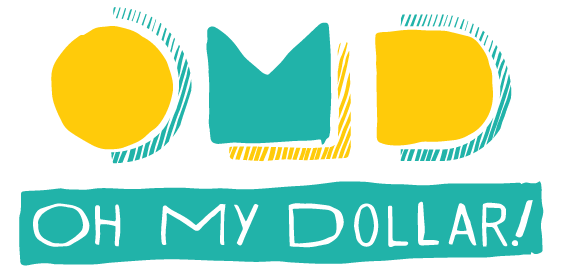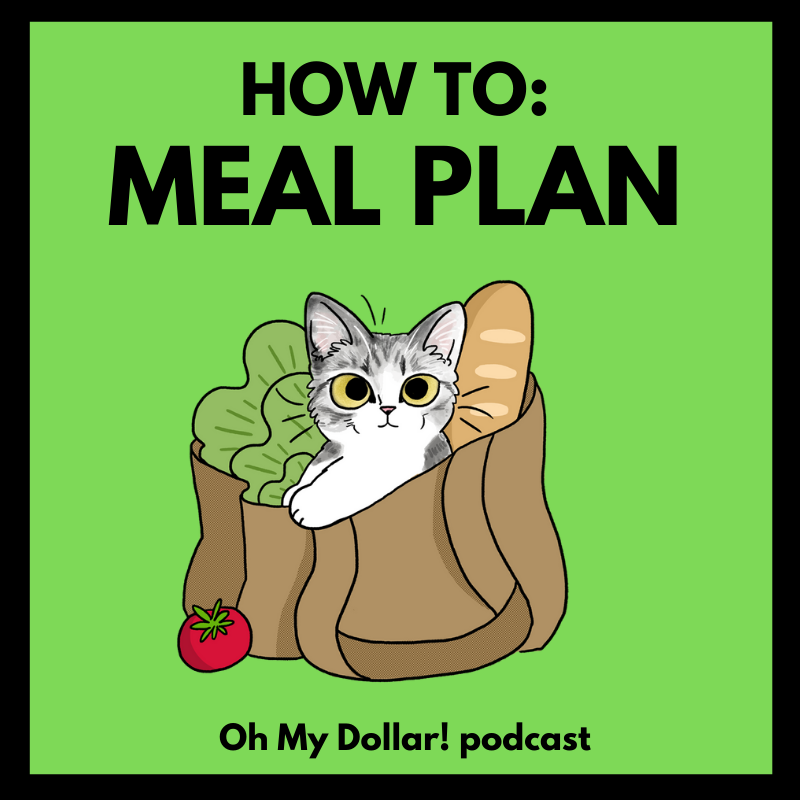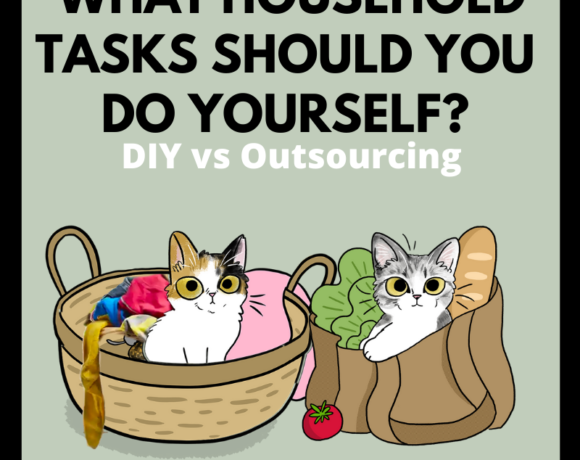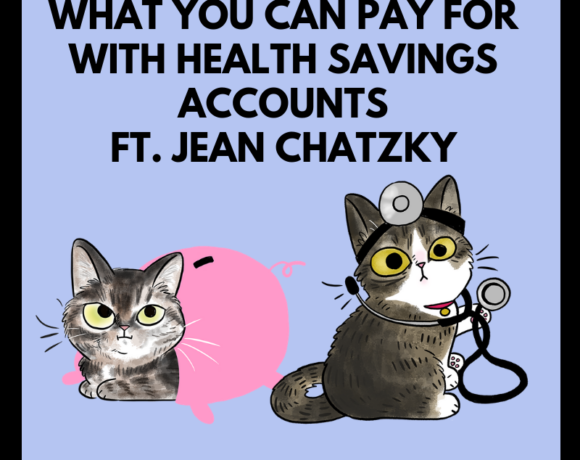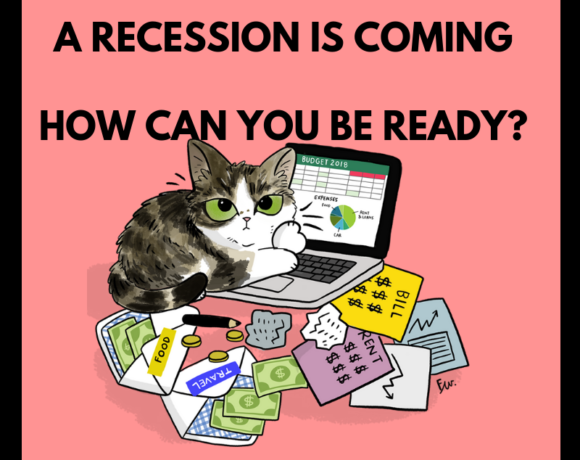Meal planning has dramatically lowered the amount I spend on food, lowered my stress and anxiety, and also helped me make healthier choices. It wasn’t until I embarked on a “30 days of packing lunch” challenge about 6 years ago that I started to get into meal planning, and now it’s part of my life every week. I can’t believe I used to go to the grocery store like nearly every day! And honestly, it’s so much easier than staring into the void of your fridge wondering what you will make every night.
Send me your questions!
Many have questions about how personal finance is rapidly changing in these unprecedented times – it seems like many of the rules are now suspended. So I’ll be answering whatever your questions are about changes to universal credit, unemployment, student loans, health insurance – and if you ask, I will explain what’s going on with the stock and bond markets.
So, please write in your questions to questions@ohmydollar.com or tweet me @anomalily and I’ll try to answer every single question I get in a a few episodes over the next week. I’d also love to just hear just little audio updates about how you’re doing in the world. You can leave a voicemail in the US at (503) 877-4338 or you can email us a voice memo to questions@ohmydollar.com
Oh My Dollar! news
We are having another Talking Dough and Eating Donuts: Pandemic edition livestream this Saturday at 2PM Pacific. Subscribe on youtube and hit the “bell” icon for notifications to get an alert when we go live.
We’re supporting one another and sharing pet photos on the Oh My Dollar forums, a friendly, nonjudgemental online community about money – come join us, we’re nice!
Email us any financial worries, successes, or health care questions at questions@ohmydollar.com or tweet us at @anomalily or @ohmydollar.
Purrsonal Finance Society Members
We absolutely love our Purrsonal Finance Society Members, the folks that generously support Oh My Dollar with $1 or more a month on Patreon – and have made is so we have free, full transcripts for every show.
This episode was underwritten by patrons Tamsen G Association, Galina S and Warrior Queen. To learn more about being part of the Purrsonal Finance Society and get cool perks like cat stickers, you can visit ohmydollar.com/suppor
Other Episodes You Might Find Interesting
Episode Transcript (supported by our Patrons and provided by DSW Transcription)
[00:00:00] This show is supported by listeners you through our Purrsonal Finance Society, which is a fancy name for our Patreon members. You can join up with other Oh My Dollar! community members to support episode transcripts, live streams, and more by making a pledge of $1 or more per month. Patrons get cool perks cat stickers, discounts, and a special badge on our forums. To learn more, you can visit ohmydollar.com/support!
[00:00:23] Welcome to Oh My Dollar!, a personal finance show with a dash of glitter. Dealing with money can be scary and stressful. Here, we give practical, friendly advice about money that helps you tackle the financial overwhelm. I’m your host, Lillian Karabaic. Today, I want to talk about a thing that has dramatically lowered the amount I spend on food, lowered my stress, and anxiety, and also helped me make healthier choices. It’s called meal planning.
[00:00:49] This actually came as a suggestion from … I was asking around the office, “What are things that you feel you should know as an adult, but no one has sat down and explained to you?” Someone said, “Meal planning!” Meal planning, for me, was the kind of thing that it seemed like mommy bloggers with five-year-old- five kids did; not the kind of thing that I did. Well, for years, I’ve been eating the same thing for breakfast and often had routinized what I took for lunch each day.
[00:01:22] I never had what I thought was a “meal plan.” I never would write it down. That was just so many levels of extraction of more organized than I was. I felt like it was a level beyond what was necessary. It wasn’t until I embarked on a ’30 days of packing lunch’ challenge, about six years ago, where I tried to get everyone in my office to pack lunch for 30 days, that I actually started to realize that meal planning was extremely helpful. Now, it’s part of my life every week. I genuinely cannot believe how much time and money I wasted by not meal planning.
[00:01:58] My meal planning is pretty simple. You can get really extreme with spreadsheets and charts, but you can also just write down what you’re going to eat that week. It doesn’t have to be complicated. I used to go to the grocery store every other day because I had forgotten some random thing. So, this is a collection of tips for meal planning, some of which I have learned from my own experience and some of which I got folks to share with me.
[00:02:24] The first thing to know is it’s okay to only plan for a few days. There is nothing magical about a week. Feel free to ease yourself in. I think a lot of people get scared and put a lot of pressure on it by feeling like they need to have the perfect bullet-journal meal plan, and it needs to be color-coded. But it’s okay to give it a shot just with three days, or four days and see what it’s like to plan.
[00:02:47] What does the act of actually meal planning look like? It’s literally just writing down what you’re going to eat. Don’t get caught up in a system. Just use whatever works best and most easily. It could be just jotting down your little plan for the week on a post-it note and putting it up next to your monitor. It could be decorating a gorgeous page in your bullet journal, if you want. It could just be notes that you put in Pinterest, if that’s the thing that works for you.
[00:03:14] Once you start to come up with a plan, start a calendar of what you’d like to cook over the next few days or few weeks. Some people use Google Calendars that have notes on the day for each day’s menu. Google Calendar can work really well if you need to share it with someone else; like someone else expects it. But the most important thing is the process of actually writing down what you’re going to eat. It doesn’t have to be super-granular. It could be … For years, mine was just “Mac.” I’d write “Mac” on Wednesdays, and I’d write “Stir-fry” on Thursdays. It wasn’t like I was writing a massive list out.
[00:03:52] The other thing is if you are starting meal planning because, right now, you eat out every single time, for every single meal, I don’t want you to feel like every single meal needs to be eaten in the house. I think some people will get stuck in perfectionist thinking around this, where they think they’re going to switch to meal planning and suddenly, they’re going to cook all their food. But, if you’ve previously been eating takeout, and going out to food carts for lunch every single day, and grabbing a smoothie, and a coffee on your way into work, you’re not going to immediately switch to doing every thing. A plan could just be like, “Hey, I’ve planned ahead and on Wednesday, I don’t have anything scheduled, and I’m going to try to cook on that day; hopefully I’ll have leftovers for Thursday.” It could be that easy. Maybe because of coronavirus panic, you actually just want to insource more foods.
[00:04:44] All right, so the strategy for getting into it is you need to figure out what you eat, and then you need to put them on days of the week. Most people eat three meals a day and a couple snacks. You might vary. If you don’t know, figure it out; because sometimes, people are like, “I have no idea what I eat.” If you’re struggling to come up with recipes … I know that I have this problem that happens, where- I tend to meal plan once a week, and then I immediately go grocery shopping. Then, when I sit down to do the meal planning on Sunday, I get a case of what I like to call meal-planning-induced amnesia, where I fail to remember what the heck I eat, every time I sit down to plan out my meals. I’m like, “I have no idea what I eat.”
[00:05:24] One thing I recommend doing is checking out the websites of different meal-kit services, and I’m not even saying you need to subscribe to a meal kit. I think meal kits can be a great jumpstart for people who have never cooked before, but here’s the thing. They think that you’re dumb, but you’re not. You can totally go on their website and get all of the recipes for HelloFresh, Blue Apron, et cetera. They put all of their recipes online. You don’t need to pay them for those recipes, and you could just go to the grocery store instead of having a giant box show up to your house. You can – guess what? – customize the recipes to your liking instead of being mad when you get something in your mailbox that doesn’t work for you.
[00:06:05] I also find that BuzzFeed listicles that are like, “Quick Weeknight Dinners That You Really Need to Try!” … Those totally help a lot. I’d also beware of, when you’re looking at recipes, the special ingredients that don’t actually add a lot to the dishes. Websites, and especially meal-prep services, try to convince you that they’re giving you something super-valuable and unique by making it a “Saffron-roasted Brussels Sprouts.” It turns out, regular old paprika on your Brussels sprouts is pretty good, and most things that are in a recipe are there for a reason. If it’s some kind of flour, and it’s an exotic flour, it’s probably that they’re just like, “Oooh, it’s rice-crusted flour!” It’s really just there to add some sort of binding agent, or to cover whatever you’re frying in spices.
[00:06:57] Think about the components that go into a recipe. If you find a special ingredient, and you’re like, “Do I really need that kind of vinegar?” … You can also google, if you’re in the situation where you’re like, “Oh, my gosh! That is a special ingredient; I’m only gonna use it on one recipe, but I do want to try this recipe.” One, if it comes in a small package, you might want to just try it out. But if it’s really expensive, or you’re not going to use it in other recipes before it goes bad, then you can google to see if there’s an alternative or if it’s really important. Because I think that’s one of those things, where people will be like, “Do I really need vintage aged balsamic vinegar in that recipe?”
[00:07:34] Once you start to meal plan, you’ll start to get an idea of the recipes that you eat on a regular basis. Once you get used to it, create a list of meals that you love and are easy to cook. You can hang it on the fridge, put it in the kitchen, wherever it is … I used to have mine hanging up on my fridge, but it turns out my cat likes to eat slips of paper on the fridge, and she’s slowly destroyed every single part of the meal plan that I had on the fridge, so it no longer lives up there. If you also have a paper-eating cat, you might want to choose somewhere else.
[00:08:04] Putting staple recipes into the rotation frequently makes it really easy to just … When you get an inspirational recipe, you can just put- you can have the one day a week that you do that: “Fun new recipe that I saw on Pinterest that I want to see if it works!” You can always do those on Fridays or do them on Wednesdays because you have that day- you have more time on that night; whatever it is. Then, the other staples you fit into the week.
[00:08:30] One of the keys with meal planning is, as you start to work through the staples, you’ll get a really good sense of when you want those recipes, and you’re going to get a good idea about when those meals take longer … You might learn, like, “Oh, I shouldn’t try to make this epic stir-fry dish on a night that I don’t have a babysitter because it’s absolutely impossible to do on those nights.
[00:08:58] This is a weird thing to say, but check the weather when you’re meal planning, because it turns out if you’re like, “Oh, I’m gonna plan for this butternut squash soup,” or whatever, and then, it’s like 90 degrees outside, you probably don’t want to either eat, or cook something that has butternut squash. I also would recommend that checking the weather is also very helpful, if you’re going to be using the oven a lot, because one thing I’ve really noticed is that if I do a lot of roasting heavy foods when it is hot outside, it’s really miserable to cook those for dinner at 6:00 p.m., when it’s 95 degrees outside, and I’ve just gotten home from work because it makes my whole house really warm. So, that’s a thing to consider. By contrast, I love to roast things in the winter because I might as well heat up my house for slightly cheaper, while I make food, by having the oven on.
[00:09:51] So, once you get inspired on what to eat, start a calendar of what you’d like to cook. Just put it there. One recommendation I have is to go with theme nights. This is especially helpful if you’re feeding kids, or a family. So, like Monday is pasta; Tuesday is fish; Wednesday is tacos … Whatever that is, you just start to riff off of that. Then, that makes it a lot easier because you can start to slot the recipes into there.
[00:10:15] Similarly, if you’re new to cooking, or not in a place, right now, where your life is going to allow for a lot of cooking, instead, think of different ways you can look ahead at your food supply that are realistic. Bagged spinach, a tub of hummus, a bag of pretzels, and several frozen dinners from Trader Joe’s sounds like a three-day meal plan to me! If you’re really stressed out, or your health doesn’t allow for it, a meal plan is just writing down what you’re planning to eat. It can significantly lower your stress if you’re in a bad health situation, or you’re depressed, or you’re just dealing with something, where planning elaborate dinners from Pinterest is so not on top of mind, but you still need to get food in you.
[00:11:00] One of the things I’ve talked about before – I think I have an episode on how to save money when you’re depressed, or how to deal with your finances when you’re depressed – the Depression Meal. I think it can be extremely valuable, when you have no energy, and no motivation, what kind of things you can immediately make for yourself. You know, this is true regardless of where your mental health and schedule is at. Pay attention to what your “lazy” dinners are and look for nights, or days that you know you’re going to be stressed out.
[00:11:30] For me, I know that if I have a work meeting that leaves me at work til 7:30 p.m., or if I do a morning skating session, and I had to get up at 4:00 a.m. that day, I am not going to have the energy to do an elaborate meal. Those nights are the nights that I do something super-simple, or I plan ahead for leftovers. I’m not going to do something really epic.
[00:11:50] I also recommend paying attention to what slows you down or what shortcuts you can use. So, I eat a lot of Brussels sprouts, and chopping, and shaving three pounds of Brussels sprouts takes almost as long as the actual roasting of them does. I started to realize that the price difference between pre-shaved Brussels sprouts and whole ones was only a few cents a pound, and it ended up saving me hours, over the course of a month. So, it was 100-percent worth it to me to pay slightly extra to speed that part up. This can be true for pre-chopped veggies, pre-peeled garlic – any of those things that you find are the things that slow you down.
[00:12:26] I also think that a lot of people feel like- they see these gorgeous meal-prepper flat lays on Instagram, and they feel like every meal has to be the same meal, otherwise they’re not being efficient, or something like that. You do not need to be a master meal prepper to make a plan ahead for your food; nor does every meal need to be the same. But that being said, utilize leftovers because leftovers are magic. If you want to feel like a super-organized Instagram food influencer, you can call it meal-prepping, but I think meal-prepping is just millennial leftovers.
[00:13:00] Leftovers are a staple of meal planning. If you can make a roast tempeh on Thursday, lunch at work can be tempeh sandwiches on Friday. I used to try to make enough of everything I cooked to use as leftovers for the next day, but on nights that I make a dish that doesn’t keep – for example, I tend to have nachos once a week; don’t judge – I make sure that I know I need a plan for the next day for lunch, like eating out, or eating extra leftovers from two nights before.
[00:13:27] You can also consider having dishes flow into one another. This is like the AP-level meal planning. If you don’t like to eat the same thing from meal to meal, and you’re not into leftovers, but you want some efficiency, consider how much extra you can make of one part of the meal, and use it the next day, for one vegetable, or one protein. For example, you could cook rice on Monday; you could roast squash on Monday; and you could use it in three to four different meals that week. You could use it in squash tacos. You could use rice in different stir-fries. Rice, for example, gets fluffy with just a tiny bit of hot water, or a zap with some water in the microwave. If I make nachos on Friday, while it doesn’t make leftovers, there is still cheese left over from that, that can be turned into mac and cheese on Saturday. The black beans could be a casserole on Sunday. Or you could pack up the leftover chips into small bags for work all week.
[00:14:19] The other thing is to use the meal plan to speed up actual prep time. For some things, actual cooking takes way less time than the effort needed to remember to do something. For example, I like my tofu best, pressed for about five hours; pressing tofu is just literally getting the water out of it … It takes two seconds to set up the press, but I have to remember to do it, and if I get home from work at 5:00 p.m., and I haven’t pressed tofu yet, and I’m planning to have stir-fry that night, it either means the stir-fry is not going to be as good, or I have to move to another night, or suddenly, I’m not able to cook until 10:00 p.m. because I’ve waited to press the tofu.
[00:14:57] Having a meal plan means that I know, right before I leave for work – I’m going to have stir-fry tonight – I will press the tofu, put it in the fridge the whole time I’m at work, and then it’ll be pressed and ready for me, when I get home. Hummus takes me about three minutes to actually make in my blender, but only if I pre-prep the garbanzo beans. The garbanzo beans just need to be soaked. That’s all that needs to happen with them, but I need to remember to do it. So, that’s one of those things where, if I plan ahead for the meal prep, it takes no time. If you eat meat, I’ve heard it needs to be defrosted. Please don’t ask me anything about meat. I know nothing about meat, but I’ve heard that you need to plan ahead to defrost it. That’s one of those things where, if you’re meal planning, you’ll actually be able to prep ahead. So, I think that’s very helpful.
[00:15:47] If you’re in the case where you’re like, “Oh, my gosh, I wanna do this, but I barely cook right now …” if you eat out for every single meal, think about your most common meals that you eat out. See if you can try to find an easy version of that to try out at home as just your first one. If you eat a lot of Thai, try to follow a pad Thai recipe, for example. That can be one of those things where you can just start to think about it.
[00:16:10] The other thing I like to use the meal plan for is anticipation, which I think can be a really great benefit, when it comes to actually plotting out my week of food. I mentioned I have nachos about once a week. I actually use nachos as a treat after I know I’ve had a long day. Both me and my significant other kind of view nachos as a thing where we’re like, “Oh, we both had hard days at work, so we’re gonna have nachos.” Now, because we plan ahead, we actually, on Sunday, look ahead and go, “Oh, man, we both have a lot of meetings. We’re giving presentations on Friday. Friday will be Nacho Night. We will deserve it,” or when one of us comes back from a trip or something like that. It’s great because you spend a whole week thinking about how you’re going to do that, and I think that anticipation ends up being richer for it.
[00:16:57] Then, this is both a just general budgeting food tip, and also a meal-planning tip, but it’s the age-old adage – don’t go to the store hungry, or without a list. This is one of those things where, when you actually sit down and plan out your meals, then you want to consolidate what ingredients you need into a list and move it. If you start to get into a routine with your meal plan, you may even just have a regular list that you can use each week at the grocery store, and you can just slightly alter it. That’s the point that I’ve gotten to with my list, and it helps a ton.
[00:17:33] It turns out that if I go to the store, when I am hungry and without a list, I walk out with a bunch of things and none of them actually end up being meals the rest of the week. Not only have I spent a bunch of money on random snacks, and vegan Cheetos, I also am just going to have a much more stressful week because I’m going to have to run back to the grocery store three more times because it turns out vegan Cheetos do not equal dinner three nights in a row. So, that’s one of the things that I think makes a huge difference.
[00:18:05] This is the last piece of advice I want to give about meal planning. I think a lot of people will try to get into this kick as a way to get more budget-, and health-conscious about their food and start planning ahead, and they will woefully underestimate the amount of calories they need in a day, and they will also woefully underestimate the amount of snacks they need. I’m someone who snacks like three or four times a day. I’m kind of extremely on the high end of snacking.
[00:18:33] Part of meal planning, for me, is that I plan to get snacks to bring to the office, and I’m not so routinized that I’m like, “I plan – I will have popcorn on this day, and I will eat one cup of peanuts at Tuesday at 11:00 a.m..” Instead, I know that when I go to the grocery store, I need to get enough snacks that the rest of the food adds up because otherwise I end up being one of those people that knows they have leftovers in the fridge and is really excited about their lunch, and I end up eating my lunch at 10:00 a.m., when I’m at the office, when I got in at 8:00, and then the rest … At 2:00 p.m. in the afternoon, I’m really hungry again, and I don’t have anything in the plans. So, snacks are one of those things you should plan for, as well. But, if you go to the grocery store when you are not hungry, then it turns out you might make healthier and smarter decisions about snacks than if you go to the grocery store when you’re stressed at a long day.
[00:19:28] Well, those are my tips on meal planning. I’m sure some of the people listening are even better meal planners than me, so I’d love to see their tips. If you have some, come join the Oh My Dollar! forums and share on the thread for this episode. We’d love to hear them and share. I’m sure there’ll be even more ideas after this episode. If you have any other questions about meal-prepping or anything else, you can email them to us at questions@ohmydollar.com, or tweet us @anomalily, or @ohmydollar.
[00:19:55] This show is underwritten by the Tamsen G Association, Warrior Queen, and Galena S. To learn more about supporting the show, you can visit ohmydollar.com/support. Oh My Dollar! is recorded at the XRAY.FM Studios in Portland, Oregon and is syndicated through PRX. You can tweet us @anomalily, or @ohmydollar. This episode was engineered and edited by Tony Scholl. Our intro music is by Aaron Parecki, and your host and personal finance educator is me, Lillian Karabaic. Thanks for listening. Until next time, remember to manage your money, so it doesn’t manage you.
